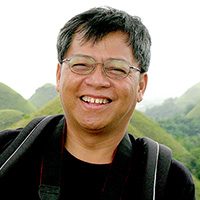SUMMARY
This is AI generated summarization, which may have errors. For context, always refer to the full article.

There is some deeper meaning behind the messages of legal organizations of the Communist Party of the Philippines (CPP) and officers and men of the Armed Forces of the Philippines, especially when it comes to the question of “justice” that retired general Jovito Palparan deserves.
For the communists, “justice” means guilt is already established. There is no more need for a trial; we go straight to the sentencing – long imprisonment with no chance of parole realistically, death by firing squad ideally. Whatever evidence is there is does not need for further verification. After all the fellow is already guilty.
This is the NPA’s “revolutionary justice” extended to the legal sphere. In punishing policemen, cattle rustlers, captured soldiers and rapists, the NPA first metes out the sanction then explains its actions after the deed. In making this process tensible to the legal sphere, the CPP’s legal organizations are mimicking the NPA, saying that they do not recognize the law; hence, its reversal of the usual judicial procedure.
This plangent “demand for justice” therefore is extra-legal. It starts from the premise that the government will never punish Palparan. And so the concern then is to convince “the people” of the communist position and make them join the Left in its campaign.
At the other end, pro-Palparan AFP officers and men and local officials he worked with in the past associate “justice” with the existing laws of the land. To them, the accused will have his day in court, confront his accusers and their witnesses, examine the evidence against him, present his counter-evidence and witnesses and question the other side’s witnesses. If he is found guilty, Palparan will be remanded to prison but will have the right to appeal the verdict. But if found innocent, he leaves prison a free man.
The invocation for legality is a bit disingenuous coming as it is from an institution that has been – of record – a consistent violator of human and legal rights. The history of the Marcos and post-Marcos AFP reveals an inordinate number of massacres that remain unresolved to this very day. In the late 1960s, there was the Manalili massacre which was the real spark for the Moro separatist war (Jabidah was a poor second), and the AFP has yet to account for the destruction of Jolo in 1975. As the communists expanded nationwide, massacres had occurred in places where they have been able to establish a base: Negros Occidental, Samar, and Davao.
These were bloody events that were meticulously recorded by the Task Force Detainees. Martial law, of course, prevented any attempt to prosecute the units involved, but the post-Marcos regimes were equally guilty of simply setting these incidents aside. It is odd that a Human Rights Commission has become part of the state, but it is a commission that refuses to go back to the immediate past and is content with investigating present crimes against humanity. This is very much unlike similar commissions setup in Chile, Argentina, and Israel.
And we are not even talking about the coup plots that the military, or more precisely factions of it, had launched against legitimate leaders of the Republic (Marcos excluded). A government commission examined the causes and impact of these golpes de estado, but not one of the main plotters had gone to jail. The report has now been consigned to the archives.
Main agenda
Alas, this resort to the legalese by the military will ultimately redound to Palparan’s favor. There are witnesses that point to his men as the ones who tortured and killed Sheryl Cadapan and Karen Empeno. But there is also a 50:50 chance that the defense can undermine their testimonies. The evidence of Palparan being the berdugo in the regional units he commanded are circumstantial and without any witnesses from the affected barangays, it will be difficult to sustain this accusation.
And there is of course, the cumbersome nature of our judicial system that will make sure that the proceedings will be very protracted and may not even be resolved even after all the actors involved, but especially Palparan have passed away.
In short, there is more to just the anger or the sobriety that these two protagonists are bandying to us the public. When one pays serious attention to every pronouncement and every action by these two extremes one will find out this truth: that deep in their souls, the main concern of State and Revolution is power.
The noises we hear are all ultimately linked to finding the best educational and propaganda message that would hasten the demise of the State or finally put an end to the last communist movement in the world.
Alas in both quests, ordinary folks almost always end up as the cannon fodder. – Rappler.com
Patricio N. Abinales teaches at the School of Pacific and Asian Studies, University of Hawaii-Manoa.
Add a comment
How does this make you feel?
There are no comments yet. Add your comment to start the conversation.